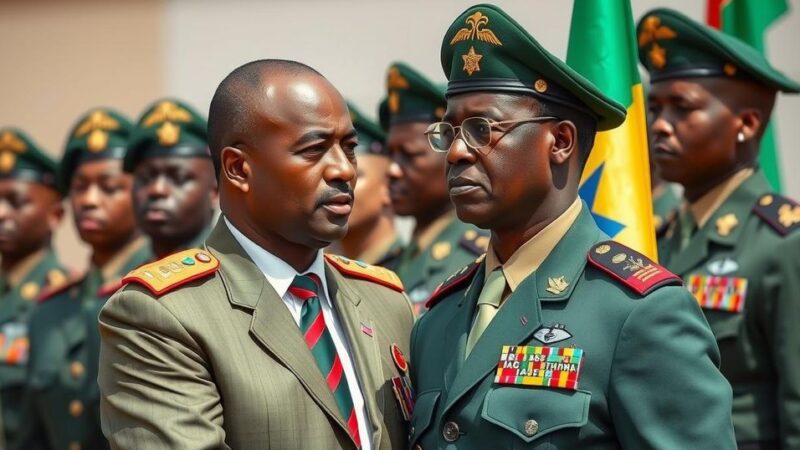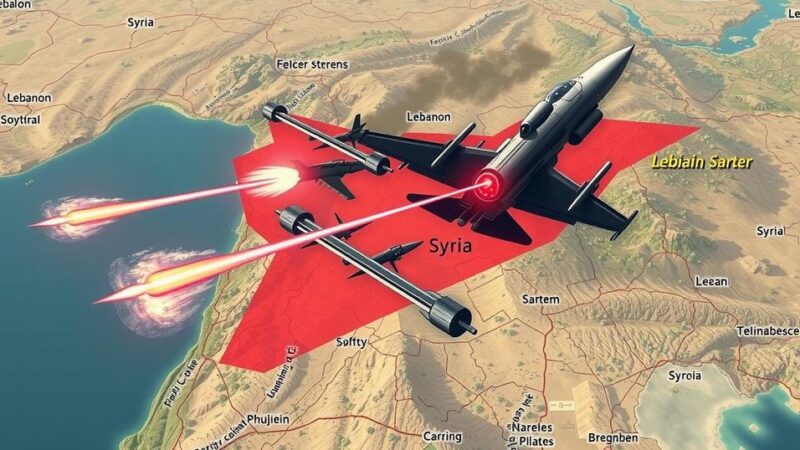Mahmoud Abbas marks 20 years as Palestinian President amidst internal division and ongoing strife over statehood. His leadership, characterized by diplomatic efforts, has grappled with the rift with Hamas and challenges in consolidating Palestinian governance. Renewed international focus, particularly from Saudi Arabia, offers potential avenues toward realizing Palestinian aspirations, albeit amidst substantial obstacles. Abbas’s legacy will depend on the outcome of these dynamics in pursuit of an independent state.
As Mahmoud Abbas commemorates two decades as the President of the Palestinian Authority, his leadership emerges as a multifaceted narrative, marked by internal divisions, a persistent quest for statehood, and international diplomacy. Inheriting a tumultuous political landscape and following the late Yasser Arafat, Abbas has sought to leverage diplomatic avenues to advance Palestine’s aspirations against a backdrop of discord, particularly with Hamas. Despite his initial promising vision, his tenure has encountered significant challenges, notably the bitter schism with Hamas, continuing Israeli settlements, and a profound critique of his governance, which some perceive as authoritarian.
Abbas’s presidency, which was initially set for four years, has extended far beyond its intended term, drawing criticism for the absence of electoral processes since 2006. The unruly dynamics within Palestinian politics and the failure to unite against external pressures have hampered efforts toward a cohesive front in negotiations with Israel. This discord was further pronounced following Hamas’s violent incursions and subsequent Israeli reprisals, culminating in a humanitarian catastrophe in Gaza.
While Abbas has made notable strides in securing diplomatic recognition for Palestine, the increasing perception of his administration as ineffective and disconnected from the populace poses substantial challenges to his legacy. Internally, calls for generational change within Fatah indicate a growing impatience with the current leadership. Nevertheless, a novel initiative led by Saudi Arabia, the Global Alliance for the Implementation of the Two-State Solution, presents potential opportunities for renewed focus on Palestinian aspirations, contingent on the parties’ willingness to engage substantively.
In summary, the viability of establishing a Palestinian state during Abbas’s continued presidency hinges upon overcoming significant geopolitical and intra-Palestinian obstacles. As Abbas navigates his remaining tenure, the efficacy of international efforts to solidify Palestinian rights and achieve statehood will be critical, reflecting both the historical grievances of the Palestinian people and their pursuit of sovereignty.
The leadership of Mahmoud Abbas marks a significant period in Palestinian history following the death of Yasser Arafat in 2004. Abbas’s administration has fluctuated between moments of hope and disillusionment, primarily shaped by the political rivalry with Hamas and an ongoing search for Palestinian statehood amid Israeli settlements and conflict. The absence of presidential elections since 2006 underscores the challenges against a backdrop of governance criticisms, autonomy issues, and mere reliance on international support.
As Mahmoud Abbas embraces his twentieth year of leadership, the intersecting forces of regional politics, internal Palestinian discord, and the overarching Israeli-Palestinian conflict frame the future of statehood aspirations. The emergence of a Saudi-led coalition seeking a two-state solution introduces a critical variable, posing both opportunities and challenges. Ultimately, the success of Abbas’s legacy will be determined by how effectively he can synthesize these elements into a coherent vision for Palestinian sovereignty.
Original Source: www.arabnews.com







